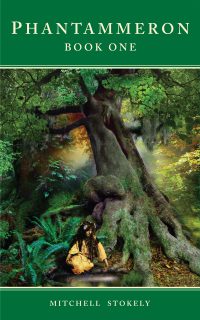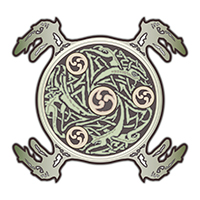Poisoned Love is a type of “love story” I am especially interested in. It’s found quite often in tragedy, and has been used over and over again in story-telling throughout the ages. It takes many forms and has been spun off in various ways in all kinds of books and film.
In the Phantammeron, the concept of a poisoned or dark love relates to many plot motifs used in the book, from joined sacrifice of a mutual but forbidden tryst, to a more sinister or “corrupted” love involving some of its more forbidden aspects; betrayal, infidelity, vengeance, spring-fall romances, the Oedipus Complex, consumption, obsession, and even incest. Some might think this type of story is beyond today’s acceptable sphere of story-telling, or worse, in the realm of some type of perversion. But really, that does not explain why, in our ancient history, these stories exist.
In fact, the entanglements and turmoil surrounding poisoned love stories have been told for thousands of years, over and over by many writers in history. The so-called “modern world” relives these stories of human drama every day in this world. Yet writers are often fearful of exploring them. Why? It forms the necessary repertoire of all great tragedy, this poisoned love ideal, simply because it is the expression of our deepest human desires and fears. For that reason the poisoned love theme has always had a close connection with tragedy and the strange events that often occur as symbolic archetypes in both our mythology and our psychology.
These failed romantic themes were ultimately tied to the imaginations of our ancestors and their understanding of the forces of the Gods and the workings of the cosmos connected to the human drama of life and death. To think that we can tell a story without the darker paths that love and human relationships often take is unbelievably naive. To think we can explain ourselves in fantasy writing without its timeless theme is almost impossible. In the Phantammeron stories, for example, I have chosen to take the concept of forbidden love and make it one of the central aspects of my books, yet not obvious to my readers. I have used the poisoned love concept to help gather the forces necessary to help further my characters and their plots, but also to further my truer purpose, which is using ancient mythology in building up the overall spiritual schema of the Phantammeron and its psychological affects on the reader through emotional mythopoeia and tragedy.
So just what is Poisoned Love?
Often as writers, and even as readers, we deny ourselves the subconscious understanding of the meaning of poisoned love. It, in actuality, is often an expression of what some call true or “sacred love” – human emotion that is often more real and more important to us than the healthier form we fantasize about or enjoy in our conscious minds. It is important to us simply because it is so much more real and vibrant than life itself; more human than our healthier emotions, and ironically more enviable than we can admit. For poisoned love is real love consumed by “tragic reality”. It impacts us through the sacrifices we often make for its darker forms. Like everything else in life, we are trapped by poisoned love and the effects it and our decisions surrounding it often have on us and the world we know. And so it becomes a reflection of our doomed selves.
We all understand instinctively that all forms of love are rare blessings and gifts. Yet even love itself cannot escape pain and the tragedy of life and death, no matter how joyous its beginning or how sad its end. It is said that tragedy is often the true mover of the heart and so teaches us about what love really means. The Greeks knew it, and so should we. Poisoned love stories accomplish that goal admirably. They show us and even school us in the depth that love can and should take and the complex reality of what it takes to form a real relationship in the realms of both our reality and the mythology of our own lives.
We all know that in this world there is no perfect marriage, for example. We all eventually wake up in the midst of a long term relationship or a divorce and realize all that we had sacrificed for those we love, what we were unhappy with or happy with, and what it took to live a lifetime with another for the sake of love. That too then has some toxic qualities within it. For all love is filled with joy and pain. And those who truly know how to love another realize both the limits of love and yet the depths of love. Yet stories of poisoned love strangely transcend that. It breeds in a sphere apart, stirring us to some greater connection with our lives we have yet experienced, but briefly glimpsed. It is through failed romances, dark obsessions, and even violence stories surrounding love we connect more fully to the range of who we are. For a mirror appears before us through poisoned love tales that show us our true darkness. And yet something heroic also remains.
I’m not trying to pretend to be any kind of expert on relationships or love. I’m simply saying that story-telling and the power of the traditional “love story” – as it directly relates to the reader and the perception of the story and its affect emotionally on us – requires something deeper than simple romantic love and erotica. It requires that we also connect with the darker failures or sacrifices that come from a failed love, one that often benefits the players involved, but which may have dire consequences later for them and those around them. Yet when those players in the story are themselves bound through love to a greater plot, a deeper tragedy through those emotional decisions are often tested then expanded upon emotionally. In the case of poisoned love, they spell either joy or doom for them and the rest of the world. But from that doom comes wisdom, too.
In the Phantammeron, I explore that idea in depth. One of the elements that develops early on in my stories is the corruption of a central pool or spring that contains the Sacred Waters of the world (and the Self). These waters are lost when the pool gets destroyed for some type of sacrifice for love. A magic cauldron gets forged later. It is then designed to hold those spectral waters so others may drink from them. And so the pool becomes an active participant in the fate of the world. For a curse remains on that cup ever after. A terrible fate awaits those that then drink from it. For they are are bonded to those who taste it afterwards.
This forms the “literal” concept of a poisoned love, whereby the waters are themselves poisoned and betray the drinker to their own frailties of desire and the unholy love for another. The world in which this emotion binds these characters cannot weather this bond, as it plays itself out in evil deeds and the sad desperation of those seeking to fulfill their desires through its curse. And so this “grail” becomes a vehicle for the poisoned love story that pervades the book. But it also is a symbol of change and energy, of animal desires, and ultimately a dire lesson against sacrificial and darker forms of love that create bliss for those engaged in it, but horrors for those outside of it.
Besides all this, the cauldron of desire is much more that a leitmotif for human drama. It was an ancient symbol of fertility for the Celts, representing the womb of the Earth Mother, the cycle of the seasons, rebirth of the sun and the earth, and of eternal youth reborn. And so these symbols transcend the poisoned love theme, yet bind it to its many deeper, darker archetypes that reside both within the Self and the culture. I will describe this idea in future articles, for it extends the meaning of water, of bowls, and the psychological concepts of the psyche and self-love. But I wanted you to see the concept of poisoned love as it is transposed onto stories inside my Phantammeron novels.
To me the art of writing is the art of writing tragic love in all its glory. To ignore the effects that determined human emotion has on the choices we make means we are no longer writing about true love, or love and human relationships at all. Great good can come from those choices and the love we share and choose to give, healthy or otherwise. But often those choices are driven by, or drive, the tragic end of a bigger story – the story of our own lives, not that our lives are always tragic.
But given that we have limited time on this Earth, there is a tragic concept at play in our life and death. And so by choosing doomed and poisoned love or love stories we choose immortality in our hearts through a deeper, richer connection to another that can transcend our own lives. Often we are poisoned by the rare desire to love so deeply and sacrifice so much for another that it changes a part of who we are, permanently. That is poisoned love in all its wonder and glory. But it is also living life to its fullest, as well.
For it is our attempt to possess something or someone, beyond what they have offered us, that is the point of poisoned love. It is often so neatly wrapped in with our darker selves that we willingly lose our identity. And so love itself becomes us. So many of us are often willing to follow our hearts to their undoing, surrounded by the hurt and pain it costs others and ourselves, yet choose to remain blind to it all till the bitter end, serving it fully. We do so so that we may finally feel alive through love and escape ourselves as in we do in death. But doing so we have embraced the vital act of feeling alive and acting on emotions of desperation so that we may learn from them and transcend them, too. When we do so, we go beyond the point of diminishing returns that defines poisoned love and embrace ourselves and our Creator, again.
It is that untamed passion for life found in doomed love stories, and in tales of love’s dire sacrifices, that will always remain behind to define future generations and their own humanity, unless like so many today, we reject psychology, reject spirituality, and turn away from the deep rich mythology of our ancestors. To do so is to becomes robots, half-human, and half-alive, dwelling in the safety of our twilight souls, unable to face the horrors of our darker selves, yet unable to grasp the heights of our brighter spirits, as well.
– the Author



